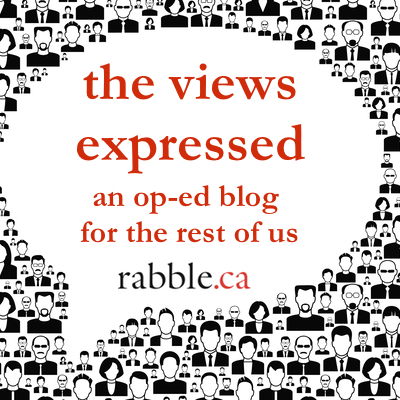On October 22, 2014, the day I was flying back into Toronto, the news of the Ottawa shooting unfolded.
I ditched the mainstream outlets for word on the twitter streets where it took all of an hour for mainstream media outlets, politicians and every third person on the #ottawashooting hashtag to sprout off about “terrorist Muslims.”
Tragedy became about using words like “terrorism,” “muslim” and “recently converted” to derail from actual news.
The vitriol wasn’t far behind, a thin fabric masking the stench of racism and xenophobia arrived in its usual glory, and people felt no ways about pronouncing their misplaced disgust.
Within 45 minutes, waiting in the airport security line furiously tweeting my rage, the Toronto-bound white man behind me, spoke to the person beside him about policing “Muslims from coming into our country.”
We can no longer afford to believe that the Canadian state doesn’t have an investment in the othering and demonization of terrorists, a term they have been quick to conflate with Islam and/or Muslims. This investment is about white supremacy, it is about settler colonialism, it is fundamentally about the concentration of power.
Terrorism is a global political agenda, to believe otherwise, is to dismiss the changing reality and experiences not only of Muslims, but every racialized person around the globe.
The way in which language is being increasingly modified and manipulated by the state only serves to control the level to which people organize, mobilize and demand change. In using it, the Canadian state ramps off any responsibility and accountability to external parties and preserves the myth of a liberal multicultural society invested in egalitarian principles.
If we talk about any of the real issues, from the continued occupation of Indigenous lands, rising youth unemployment, explicit institutional racism and widening income disparity, all of us would have to acknowledge our complicity. But the shooting took place on a Wednesday, we haven’t had a shooting since the Brampton courthouse and it’s time to remind the general public of an increasing big brother obsession with ‘radicalization’ and ‘terrorism’, our new wave witch hunt.
How do we name the distraction tactics of the media, political pundits, academic hogwash masquerading as truth? How do we ask the hard questions? Who benefits while we scramble in state constructed fear? Why do we not speak to the very real issues of gun control and the connections between war violence, state violence and interpersonal violence?
We can start by naming what it is the Canadian state seems to be distracting us from. A mass majority of Canada’s foreign policy, by putting at risk the security of those believed to be at the margins, could qualify as terrorism.
Canada could be called a terrorist state for aiding and abetting war criminals, providing funds for continued Palestinian genocide, systemically creating policies that incarcerate and vilify Black and indigenous youth, refusing to investigate the large groups of missing Indigenous women.
So instead of derailing by deferring to terrorism, Oh Canada, we should instead talk about how this state funds, supports and creates a place of violence.
The day after the shooting, a call for heavy militarization impacted my community, creating a tangible unsteadiness. Police officers were present in mosques for jummah prayers, gangs of red and blue flashing lights blocked the streets near Jane and Finch, and I watched as young Black boys were encouraged to ‘play inside’.
“How many enemies can we internalize and still expect to stay whole?” (M. Jacqui Alexander) How much longer am I required to re-explain that my beliefs shouldn’t be played out as part of a national agenda?
My religion and identity shouldn’t be incorrectly conflated with state constructed top of the hour sensationalized news.
For those living in Ottawa, there remains a physical reminder that the streets they walk down, the places they spend time in with family, this near brush with death will take much longer to wipe from memory. For those who begin to look at these spaces with a loss of innocence, a loss of safety, a perceived ongoing threat.
You are not alone.
Living in a country that has universally conflated terrorist with Muslim, I feel this every time I leave my front door. The very act of covering my hair comes with trepidation and fear of being further put under the microscope.
So yes, it isn’t the same, but that real fear, for ourselves, for someone hurting the people we love comes from the same gaping place. So in light of this shock-value media, and Canadian state agenda, I urge us to remember that at least in this we share something in common.
In that gaping place is enough wiggle room to authentically connect with one other, to speak critically, to stand with each other to change the systems in which we live.
Hawa Y. Mire is a diasporic Somali storyteller, writer, youth advocate and strategist with a focus on Blackness, (dis)connection and (un)belonging. Hawa has worked locally, nationally and internationally with service providers focusing on the combined use of arts-based dialogue and expression, experiential learning and root-centred education to support, mentor, and spark innovative leadership. Follow her @hymire.



